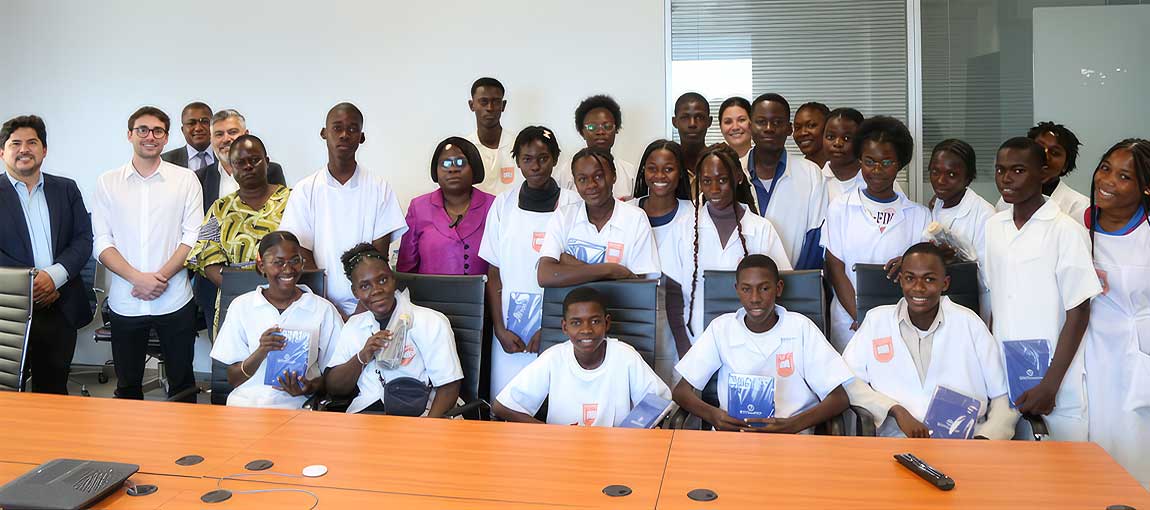 Students from Ngola Kanini Public Secondary School
Students from Ngola Kanini Public Secondary School
A group of 30 students from Ngola Kanini Public Secondary School visited our World Bank office in Luanda this week. The students, ages 14-15 years, had the opportunity to interact with our operations team and three of our task team leaders who manage the implementation of our human development work in Angola. The visit was requested by the students themselves, after our World Bank Global Director for Gender, Hana Brixi, visited the school in September of last year.
Their school benefits from the implementation of the Girls' Empowerment and Education for All Project. The project supports a transformative initiative, promoting gender equality and education, through which numerous gender development clubs have been established in secondary schools across Angola . These clubs provide a safe space for girls and boys to engage in meaningful conversations, discuss and debate gender-related issues, including reproductive health, and gain a deeper understanding of the importance of equality and respect.
During the visit, the Bank’s specialists shared valuable insights about our work in Angola and its development impact in the country and across the world. They engaged in conversation, providing the students with a deeper understanding of the Bank's role in promoting social and economic development, poverty reduction, and sustainable and inclusive growth.
The students passionately shared their aspirations and the importance of equal access to education, healthcare, social protection, jobs, and economic opportunities for girls and women, as well as the need to challenge gender stereotypes and norms.
Their confidence in expressing their thoughts and ideas, challenging societal norms, and advocating for change was both very refreshing and truly inspiring! It was a true testament of the impact that these clubs are having on the lives of these young individuals.
Our office organized this visit for the students, hoping it would provide them with an educational and inspirational experience. In the end, we were the ones who were inspired by the students' interest and active participation and engagement. Their level of understanding of gender development and its importance for the progress of any country was remarkable.
At the end of the engagement, the students were encouraged to study hard to achieve their goals and to actively work towards creating a more inclusive and equal school for all. We recognized them as the future leaders who will drive positive change in their communities, their country, and beyond.


Join the Conversation